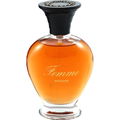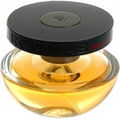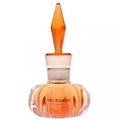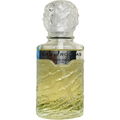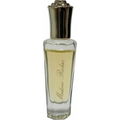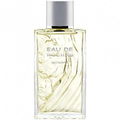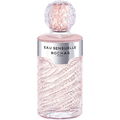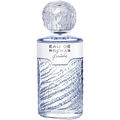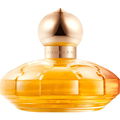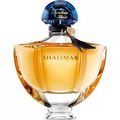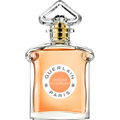Which statement applies to you the most?
a. I want more validation and recognition, personally and professionally.
b. I need more variety and more freedom. Boundaries are suspect to me.
c. I like to take on challenges.
d. You've mistaken me for your masterpiece (song by Celeste: Not your muse)
What are you looking for? A "social scent" or a "private scent"?
The social scent is the perfume that supposedly suits you best depending on your circle of friends, workplace and current fashions plus advertising. Maybe it is also the fragrance that is currently most hyped and which you do not want to "diss", because you fear that you then piss off with the "opinion leaders".
The "private scent" on the other hand is the one that corresponds to our own ideal image, that is, the perfume that best reflects our ego according to our ideas.
On International Women's Day, 3/8, you may be wondering if perfumes can make any difference at all when it comes to our psyche or even our place in society.
My point is that perfumes have great symbolic power.
At the beginning of the emancipation movements in the 20th century, in the "Roaring Twenties" for example, women suddenly dared to wear tart fragrances. The famous chypre perfumes emerged, but also the legendary "abstract florals" like Chanel No. 5.
With the tart, new perfumes, women signaled that they wanted to be independent and autonomous, because just citrus oil-and-bergamot in combination with patchouli and mosses had previously been reserved for men.
And even today, "chypres" in their original form are not fundamentally suitable for the masses.
Most new launches continue to take place in the field of fresh, fruity-floral perfumes, gourmands and "Florientals", although a trend towards so-called "Neo-Chypres" can also be discerned in the niche.
In 2011, Rochas, which was then owned by Proctor and Gamble, launched the fragrance "Muse", which was supposed to refer to the legendary "Femme".
(Today, Rochas fragrances are produced by the company Interparfums.inc. Their portfolio includes Boucheron, Lanvin, Mont Blanc, Lagerfeld, Jimmy Choo, Van Cleef&Arpels, among others).
"Femme" (1944) is a prototype of the fruity Chypredufts and is considered a masterpiece. For me, a wonderful "private fragrance".
"Muse" (2011) unfortunately not.
Production was discontinued, but you can still find very cheap remnants on the net. From many users*innen the fragrance is described as "delicious".
However, I have an ambivalent relationship to fragrance descriptions, which are "Yummy"" or even "treat".
(By the way, I also do not feel "cuddly" as a desirable category. If you're looking for a "social scent" for your professional life, I can't recommend sweet-cuddly scent messages anyway)
"Muse" was composed by Jean-Michel Duriez and is "fruity-delicious", sweetish.
If "Muse" had to be assigned to a music genre, shooting star Celeste from England would not come into play, even though her song "Not your muse" inspired me to write this comment, but pop music from Brazil.
If "muse" needed an occasion, it wouldn't be a visit to the opera, but an afternoon in the fruit section of a supermarket.
"Muse" is a "floral", a cocktail with banana and vanilla. The fragrance is pleasing, not extravagant, but somehow quite charming.
By the way, Duriez created a very similar perfume in 2006, "Sira des Indes", also here you notice a banana component. The top notes in both fragrances are loud, carefree and youthful. While "Sira" presents Indian spices in the course, "Muse "becomes a little sweeter in the drydown.
"Muse" can therefore not tie to "Femme" by Roudniska, even if the creators would have liked so.
Why at all is the "successor fragrance" of "Femme" called MUSE?
A muse is understood to be a source of inspiration for a male artist, a woman who is supportive.
When you open the packaging of "Muse", you read, "Une muse sommeille en chaque femme".
Means: A muse slumbers in every woman.
FOR REAL?
Doesn't sound very avant-garde.
But there are more recent opinions on the subject of the muse.
Francine Prose, in her book "The Lives of the Muses: From Lou Andreas-Salomé to Yoko Ono," writes that there was always a certain pattern when the title "muse" was ascribed to a woman.
In her opinion, it is a stereotype that muses are victims of famous men.
Francine Prose argues that being a "muse" in the 19th and 20th centuries was a way for women to explore avenues they never could have without their relationships with "great" men.
What role model the people in charge at Rochas had in mind when "Muse" was composed in 2011, I'd love to find out.
Banana, frangipani, vanilla. Friendly, fruity, adapted.
This muse would look good in a Hawaiian shirt. In said fruit department in the summer.
All in all, the fragrance lacks independence.
You can twist and turn the concept of "muse" on any level you want: a muse seeking validation and recognition (see point a.] at the beginning of my comment) shouldn't be on familiar ground, but should boldly create new, individual art on her own.
And what perfume are you wearing today, on International Women's Day?








 Top Notes
Top Notes  Banana leaf
Banana leaf Bergamot
Bergamot Mango
Mango Orange
Orange Peach
Peach Heart Notes
Heart Notes  Narcissus
Narcissus Orange blossom
Orange blossom Cinnamon
Cinnamon Base Notes
Base Notes  Musk
Musk Sandalwood
Sandalwood Styrax
Styrax Ambrarome
Ambrarome Vanilla
Vanilla






